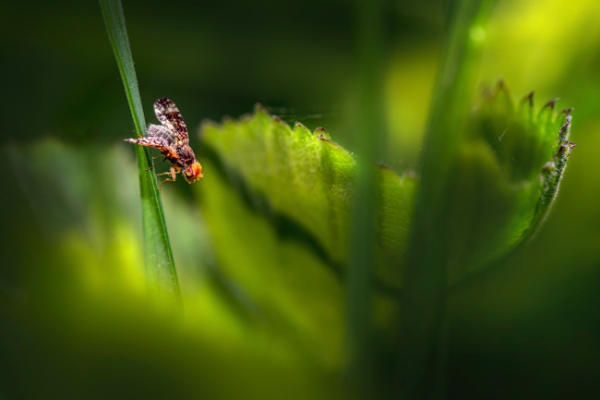
MARIA SAKKA
Postdoctoral Researcher,
University of Thessaly, Volos
2022–2023 Fulbright Greek Scholar Program to the U.S. Host: U.S. Department of Agriculture, Crop Protection and Quality Research Unit, Parlier, California
Entomology is the study of insects, and the term comes from the Ancient Greek “ἔντομον”, which means “insect”, and -λογία, which means “study of”. Entomology is divided into different fields like agriculture, biology, chemistry, animal health, or molecular science. Entomologists can contribute to different fields, such as the interaction of insects with the environment, humans, or other organisms.
To begin a career in entomology, a bachelor’s degree is needed in the field of Agriculture Sciences, Biology, or Zoology. A master’s degree is required to enhance your skills and gain more knowledge. At this level, you will encounter different insect species, and this can help you decide if you are interested in earning a Ph.D. in Entomology, which will equip you with professional skills in a specific species or group of insects.
Entomologists can work in different fields, such as agricultural, economic, forest, or medical entomology; insect ecology; insect pathology; etc. There are several options to choose from in terms of specialization, and entomologists can specialize, for example, in specific species, on insect behavior, or pest control. Entomologists can be employed as faculty members in universities or in government and have many other options, including private food companies, zoos, museums, public health organizations, and agricultural agencies.
At the undergraduate level, students learn general zoology, morphology, anatomy, and physiology of insects. Students learn to identify and classify different insect species through lab or field courses. In graduate studies, students delve deeper to study behavioral aspects, factors that influence insect environments, veterinary and public health entomology, and integrated pest management.
Photo Credit: Erik Karits for Unsplash


